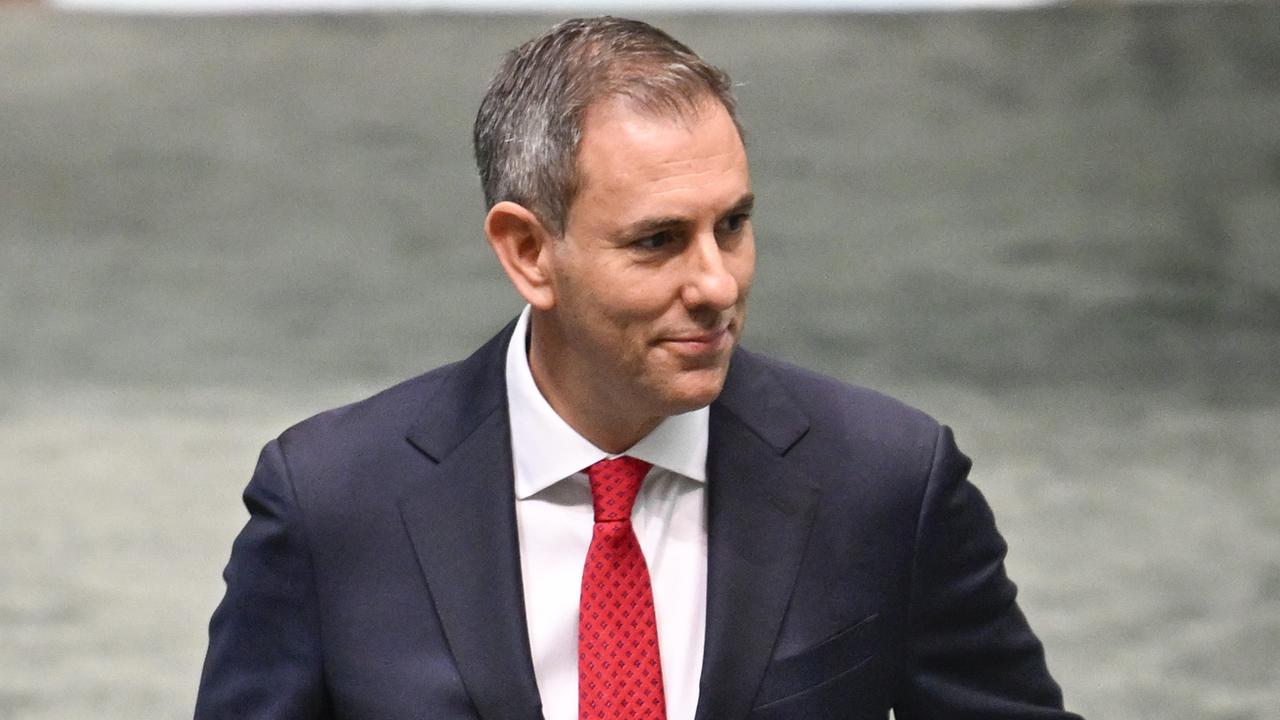There was nothing wrong with the polls, apparently. It was the voters who got it wrong.
Labor would have won by a landslide if the lard-headed nincompoops had paid attention.
Instead, they had “sent a message” to the Labor Party, Anthony Albanese told the ABC’s 7.30 host Leigh Sales last week. The message was that “we haven’t sold the message well enough”.
That Labor’s new leader should even bother talking about marketing the message, and not the message itself, shows that the implications of the party’s rejection have yet to sink in.
Labor will face the next election having spent 51 of the previous 75 years in opposition. The 13 years of Bob Hawke and Paul Keating are looking like an aberration. So long as it remains estranged from the workers it once represented, it is incapable of governing in its own right.
Labor’s loss was neither the fault of the voters nor of another failed messiah. Shorten was reading from a script written by Labor’s elders three years before he became leader.
The origins of Labor’s epic miscalculation are revealed in a book by Michael Thompson published shortly before the election. In 2010, after Julia Gillard’s near defeat against Tony Abbott, the party ordered a secret review by Steve Bracks, John Faulkner and Bob Carr into the causes of the party’s failure. When it was eventually published, two out of the three sections were redacted.
The report sounded the alarm at the crisis in membership. Labor faced the same challenge as European social-democratic parties whose support base had been “devoured by Green or left-leaning parties on the one hand and right-wing populist parties with a largely anti-immigrant agenda on the other”.
The authors recommended a strategy to target voters lost to the Greens by advocating stronger action on climate change and support for gay marriage. Labor should champion its “history of successful progressive reform” and develop stronger ties to the unions.
The 2010 review established the plot for the disaster which culminated on election day, May 18, when Labor won the battle against the Greens in the Victorian seats of Cooper, Wills and Macnamara only to lose the war in the rest of the country.
Before Labor can learn the lessons from this election, it must learn a lesson from decades ago. Robert Menzies’s appeal to middle-class ambition at the 1949 poll set a pattern for post-war Australia that Bill Shorten thought he could break. Like others who tried to break it before, he failed.
The rise and fall of Shorten is a metaphor for the souring of Labor’s relationship with the workers. His ascension began as the workers’ champion at the 2006 Beaconsfield mine disaster.
“He speaks the language of the people; everyone is ‘mate’,” wrote an enthusiastic colour writer in The Age.
It ended on May 9, the 13th anniversary of Brant Webb and Todd Russell’s rescue, when Shorten was treated with contempt by a worker at the Port of Brisbane to whom he had extended his hand.
The title of Thompson’s book, Labor’s Forgotten People, acknowledges that the party has more to learn from Menzies than it does from Thomas Piketty, although Thompson as a Labor loyalist might be afraid to say so.
Thompson finds that the strong internal reviews that began after Labor’s 1963 defeat share a common narrative. Chastened by its electoral fall from grace, the party is now listening to the people. Changes to its structure are recommended that will make it fit to govern again.
The adoption of quotas for women is the only recommendation that has been consistently followed, notes Thompson. Indeed, after the 2013 election defeat, Shorten went so far as to demand quotas for lesbians and gays.
The lure of identity politics is the key to Labor’s downfall. The first signs appear in a 1979 review that called on the party to do more to increase its appeal to women, ethnic communities and young voters. Yet, as the 2002 review acknowledges, affirmative action had the perverse effect of alienating Labor’s blue-collar base.
Female candidates were lawyers, teachers and academics. Few if any could boast low socio-economic credentials.
The resonance from the 1949 election resonated in this year’s election night call of the card.
The Coalition comfortably held the seat of Menzies when the mighty wind of climate anger that was supposed to smite the Liberals in Victoria failed to lay low its strongholds.
A cyclone of sorts did strike in Chifley, however, the western Sydney seat named after Labor’s last working-class prime minister and the loser in 1949. The 7 per cent swing against Labor in Chifley was in keeping with most seats in western Sydney, where the Coalition has strengthened its grip at every election since the early 1990s with two exceptions.
It lost ground in 2007, when Kevin Rudd fooled voters into thinking he was on the side of the battlers. And it slipped again in 2016, when the Malcolm Turnbull Experiment, as we now call it, worked in the blue-ribbon heartland but failed miserably in the blue-collar suburbs.
This election has proved once and for all that Thompson’s working class — or, as others might call it, the middle class — is not heading for extinction, confounding progressives on both sides of parliament.
Chris Bowen responded to claims that Labor was not selecting enough working-class candidates in 2013 by arguing that Chifley would not be an engine driver if he were alive today. He claimed that thanks to Gough Whitlam’s abolition of university fees, Hawke and Keating’s re-introduction of fees, and Rudd and Gillard’s expansion of universities, “young Ben Chifley may well (have) become a lawyer, doctor, engineer or economist”.
Thompson believes otherwise, concluding that Labor’s days as a mass party are gone.
The ultimate threat to Labor would be the rise of a leader in John Howard’s tradition, who talked over the head of the mainstream media and appealed directly to socially conservative Australians, who included large swaths of traditional Labor voters.
At the time of writing, Thompson could see no Liberal parliamentarian on the horizon with Howard’s instincts. After Scott Morrison’s emphatic victory and near-faultless campaign, he might be tempted to change his mind.
Nick Cater is the executive director of the Menzies Research Centre



